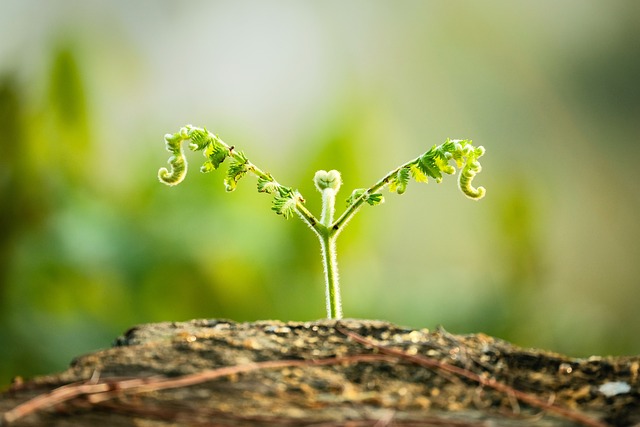The Power of Persistence in Achieving Long-Term Goals
Persistence stands as a cornerstone when discussing the journey toward achieving long-term goals. It’s that inner drive that keeps you pushing forward, even when challenges arise. When pursuing significant ambitions, the road can often become winding, steep, and filled with obstacles. Those who possess persistence, however, tend to navigate these hurdles with more grace and determination. Building a success mindset involves cultivating not only skills and strategies but also the right attitude. This article will delve deep into the role of persistence and how it intertwines with achieving your long-term goals.
Understanding Persistence
To discuss persistence effectively, we must first define it. At its core, persistence embodies the act of continuing to move forward despite challenges or delays in achieving success. Think about it: have you ever embarked on a project only to face a roadblock? The temptation to give up lurks at every corner, but persistence urges you to push through the discomfort. It’s about finding that extra gear within yourself that says, “I will not give up.” This ability to maintain focus and commitment in the face of adversity is instrumental for anyone seeking to reach long-term goals, and various studies support the notion that persistence plays a critical role in success.
Why does persistence matter so much? While sheer talent and intelligence can open doors, it is often persistence that keeps them open. Imagine a sculptor chipping away at a block of stone. Each strike of the hammer might seem insignificant, yet over time, those seemingly small efforts result in a magnificent sculpture. Similarly, persistent efforts aggregate into monumental achievements. Realizing long-term goals, whether personal or professional, relies heavily on this steadfast quality. Every setback becomes a stepping stone rather than a setback, and every challenge is an opportunity for growth.
The Psychological Aspects of Persistence
The psychological facets of persistence are fascinating. They lie at the intersection of motivation, resilience, and the broader success mindset. When you cultivate a persistent attitude, you’re not just focusing on the end goal; instead, you’re developing resilience. Resilience helps you deal with disappointments and failures. It involves bouncing back and continuing to strive toward your goals even when things don’t go as planned. As you encounter various challenges on your journey, a resilient mindset fuels your persistence, drawing on your emotional strength to push through tough times.
Moreover, one must understand the intrinsic and extrinsic factors that motivate persistence. Intrinsically, passion for your goal often drives the desire to persist. If you genuinely love what you’re doing, you’ll find it far easier to stick with your tasks no matter how difficult they become. Extrinsically, positive reinforcement from peers, mentors, and even personal rewards can bolster your commitment. Consequently, blending intrinsic motivation with the right external encouragement can significantly enhance your capacity for persistence.
Building a Success Mindset
Transitioning from simply having goals to embodying a success mindset involves strategic planning and ongoing self-improvement. A success mindset includes the understanding that failures are not endpoints but merely stepping stones on the path to your goals. Each time you confront a setback, instead of viewing it as a defeat, ask yourself what you can learn from that experience. This reflective practice not only encourages persistence but also ensures continual growth. Surrounding yourself with positive influences is equally vital; engaging with like-minded individuals who value persistence can amplify your own commitment. Seek out communities that celebrate success and resilience, and your path will become illuminated by collective positivity and determination.
Furthermore, setting smaller, achievable milestones along your journey can bolster your belief in your persistence. Long-term goals can feel daunting and overwhelming. Breaking them down into smaller, manageable tasks prevents the feeling of being overwhelmed. Celebrate these little victories; they reinforce the determination to see everything through to the end. Each milestone reached serves as a reminder of what you can accomplish. This not only enhances your persistence but also strengthens your overall confidence in your abilities.
The Importance of Self-Care
Never underestimate the role of self-care in maintaining persistence in pursuing long-term goals. When you’re on a mission, it’s easy to become consumed by the tasks at hand. However, neglecting your emotional and physical well-being can lead to burnout, making persistence all the more difficult. Integrating self-care practices into your daily routine is vital for sustaining a long-term effort. Make time for activities that restore your energy, such as exercise, meditation, or engaging in hobbies. These activities not only rejuvenate you but also contribute to a more focused and constructive mindset.
Moreover, don’t hesitate to embrace the concept of rest. Some may view resting as an indicator of weakness, but true strength comes from knowing when to take a step back. Regular breaks allow your mind to recharge, which can lead to increased creativity and improved problem-solving skills. It’s essential to recognize that persistence isn’t about relentless hustling; it’s about consistently showing up while also being kind to yourself. When you balance hard work with self-care, your persistence transforms from a chore into a more vibrant and fulfilling journey.
Persistence in Different Life Aspects
Persistence manifests uniquely in various life areas—be it personal development, career, or relationships. Understanding how this concept applies across different domains can provide invaluable contexts. In personal development, for instance, you might have goals such as acquiring new skills or overcoming bad habits. The journey isn’t always linear, and persistence makes all the difference. You might struggle initially, but the continuous effort to improve leads to mastery over time. Every small, incremental step reaffirms your commitment to growth.
In the career realm, the role of persistence becomes even more apparent. Most career paths are fraught with hurdles. Whether you’re aiming for a promotion, switching fields, or starting your own business, challenges abound. It can be disheartening when doors seem to close. However, those who practice persistence often find new pathways where barriers once stood. In career trajectory, each failure can serve as a learning experience that ultimately contributes to a deeper understanding of your industry and greater expertise in your field.
The Ripple Effect of Persistence
While the path of persistence primarily affects individuals, its advantages ripple outwards, impacting communities and organizations significantly. Think about how one person’s unyielding commitment can inspire others. When people observe someone persisting through challenges, it encourages them to adopt a similar mindset. The desire to emulate such tenacity can lead to a collective rise in morale, fostering a supportive environment where everyone feels empowered to pursue their goals. When persistence becomes a shared value, a culture of growth, resilience, and achievement blossoms.
Additionally, organizations that prioritize persistence often experience increased innovation and teamwork. A culture that encourages employees to overcome obstacles enables teams to tackle challenges creatively rather than fearing failures. Therefore, businesses that embrace a persistence-driven approach can adapt more effectively to challenges, enhancing their chances of long-term success. In this interconnected web of human experience, one person’s persistence can invigorate an entire group, leading to impacts that extend far beyond the initial endeavor.
Conclusion
As we’ve explored throughout this article, persistence serves as an essential ingredient in the recipe for reaching long-term goals. It encompasses the resilience, motivation, and sustained effort needed to navigate the complexities and challenges of any pursuit. By fostering a success mindset, emphasizing self-care, and embracing the lessons found in adversity, you can cultivate a level of persistence that leads to remarkable achievements. Ultimately, remember that persistence not only propels individual success but also fuels collective growth and community spirit. In the quest for your dreams, let persistence be your loyal companion, guiding you through tough times and shining a light on the path to fulfillment.
FAQ
What is persistence?
Persistence is the quality of continuing to strive toward a goal despite challenges, setbacks, and difficulties. It involves maintaining effort and focus, even in the face of adversity.
How can I develop persistence?
To develop persistence, set clear and realistic goals, break them into smaller tasks, and celebrate your progress. Surround yourself with supportive people and cultivate a mindset that views setbacks as opportunities to learn.
Why is persistence important for success?
Persistence is vital for success because it allows individuals to overcome challenges and continue making progress toward their goals. It helps separate those who succeed from those who give up when faced with difficulties.
How can self-care improve my persistence?
Self-care improves persistence by revitalizing your energy and mental clarity. Taking breaks and engaging in activities you enjoy helps prevent burnout, ensuring you can continuously pursue your long-term objectives.
Can persistence have a positive impact on others?
Yes! When others see someone persisting through challenges, it can inspire them to adopt a similar mindset. This not only boosts collective morale but fosters an environment where everyone feels encouraged to pursue their goals.



